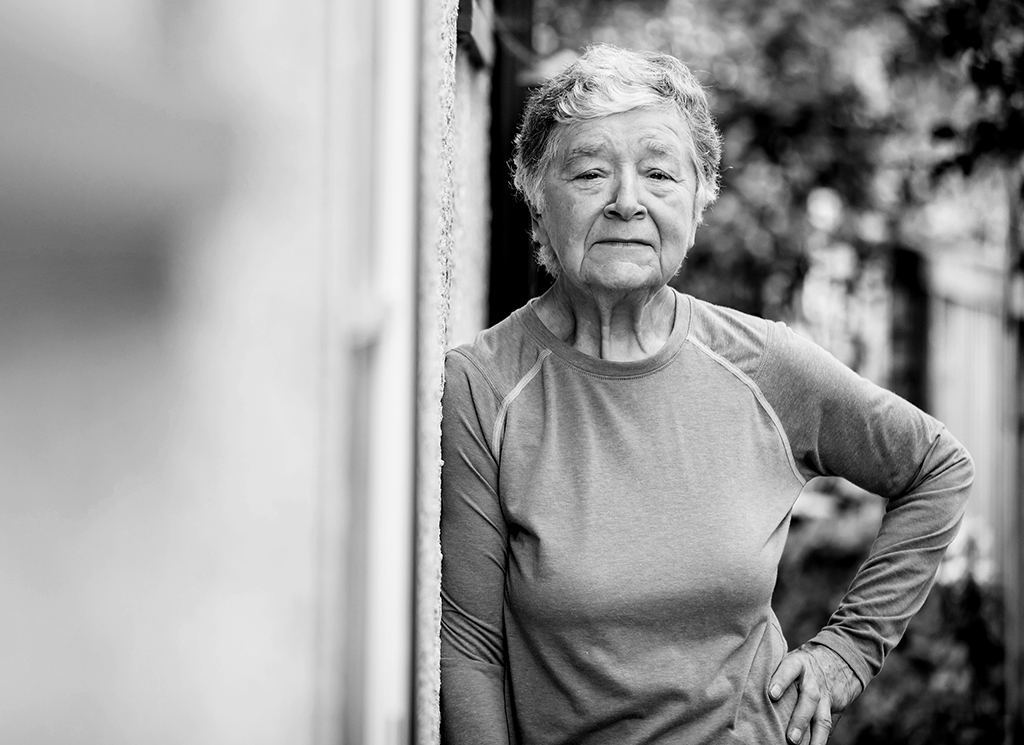Toni McNaron
Toni McNaron is an educator, memoirist and lesbian feminist critic now living in Minnesota. But her memories and motivations will always be rooted in Alabama.
“I grew up in Alabama at the worst time possible,” she recounts. “Bull Connor, dogs, hoses, George Wallace—I was at the University [of Alabama] when Autherine Lucy tried to go, and they forced her to leave. My path is so entangled with the educational shutout of Black students.”
In 1955, McNaron recalls that when Lucy was escorted the morning classes began, the street was lined on both sides with white men who worked in Tuscaloosa, Ala. Given a paid day off from their jobs at the paper mill and the rubber plant—two jobs they could hold without a high school education—they gathered in numbers, petrified that the education of a Black person would put them out of work.
“They did not have enough money to buy guns,” McNaron remembers. “But they had bricks and bats and boards, and they were there to get Ms. Lucy. It seemed to me that there were hundreds of them, maybe 200, and only one of her.”
The president at the University of Alabama was asked by the board of trustees to expel Lucy; however, both her grade point average and psychological test proved that she was more than fit to attend. The board gave him an ultimatum—expel her by the next day or resign. Lucy was gone by the weekend and the president resigned over the controversy.
When I was at Alabama with Ms. Lucy for five days, I didn’t know anything. I just knew I was scared of these guys and that she must be scared. I could have tried to find her, I could have tried to say hello—I could have done a number of things.
Toni McNaron
That moment in time continues to impact McNaron’s life. As an avid reader and teacher of literature, she cites Toni Morrison and Alice Walker as important influences in her education.
“Certainly my reading history is tied to interracial education and my ignorance and desire to become more informed,” she said. She currently is reading Ibram Kendi’s book, “How to be an Antiracist.”
“His whole premise, which is helping me understand what’s going on presently, is we have to stop talking about bad people and talk about bad policies,” McNaron said. “I think that’s tied to what [Berea is] doing educationally, because you’re exposing students who come there to knowledge that makes it less and less possible for them to hide from the policies and the policy makers that are then causing people so much pain, trouble and anger.”
She shared that Berea College’s commitment to diversity, especially in terms of its student body, is particularly compelling to her and motivation for her giving. Since beginning her support of Berea, McNaron funded the uncovered portion of scholarships for Berea students but has recently decided to establish an endowed fund for an African American student.
“When I was at Alabama with Ms. Lucy for five days, I didn’t know anything,” she said, growing emotional. “I just knew I was scared of these guys and that she must be scared. I could have tried to find her, I could have tried to say hello—I could have done a number of things. But to [establish a scholarship at Berea] means that some African American student will get a wonderful education, and then I won’t be silent, and I won’t be invisible, and that feels really important to me.”
To prospective donors and those who may not know much about Berea College, McNaron says, “Trust these people and give ’til it hurts.”


